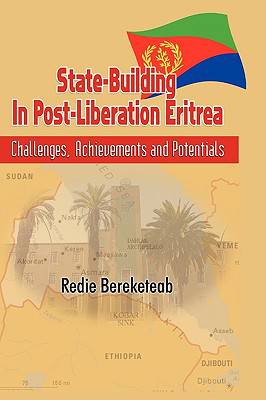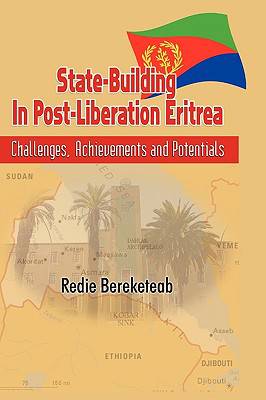
Bedankt voor het vertrouwen het afgelopen jaar! Om jou te bedanken bieden we GRATIS verzending (in België) aan op alles gedurende de hele maand januari.
- Afhalen na 1 uur in een winkel met voorraad
- Gratis thuislevering in België
- Ruim aanbod met 7 miljoen producten
Bedankt voor het vertrouwen het afgelopen jaar! Om jou te bedanken bieden we GRATIS verzending (in België) aan op alles gedurende de hele maand januari.
- Afhalen na 1 uur in een winkel met voorraad
- Gratis thuislevering in België
- Ruim aanbod met 7 miljoen producten
Zoeken
State-Building in Post Liberation Eritrea
Challenges, Achievements and Potentials((hb)
Redie Bereketeab
Hardcover | Engels
€ 62,95
+ 125 punten
Omschrijving
State-Building In Post-Liberation Eritrea explores the potentials, achievements and challenges facing Eritrea in its efforts to construct a viable state after it became independent in 1991(de facto) and 1993 (de jure). It also examines the post-liberation experience of state building focusing on the institutionalisation, bureaucratisation and democratisation of state organs. The Eritrean state's legitimacy and popularity initially rested on the track record of the Eritrean People's Liberation Front's (EPLF), its efficiency, organisational skill, and capacity to mobilise the population; which spawned hopes and optimism about the future. The book also analyses what happened to those great hopes and optimisms by examining the regime's achievements and failures in this regard. It equally analyses the role played by external factors, particularly the second war with Ethiopia, and its implications for state building in Eritrea. Redie Bereketeab holds a PhD in sociology from the Department of Sociology. Uppsala University, Sweden. He worked as a research fellow at the Nordic Africa Institute in Uppsala, Sweden between2002 and 2005. He has published widely, including Eritrea: The Making of a Nation, 1890-1991 (The Red Sea Press, 2007), 'Perilous Dualism: Language, religion and identity in poly-ethnic Eritrea' in Rights and the Politics of Recognition in Africa (Zed Books, 2004), 'When Success Becomes a Liability: Challenges of State Building in Eritrea, 1991-2005 (African and Asian Studies, vol.6, no. 4, 2007). His research interests are on political and development sociology, state, nation, nationalism, culture, identity, conflict, democratisation and governance
Specificaties
Betrokkenen
- Auteur(s):
- Uitgeverij:
Inhoud
- Aantal bladzijden:
- 308
- Taal:
- Engels
Eigenschappen
- Productcode (EAN):
- 9781906704384
- Verschijningsdatum:
- 30/05/2009
- Uitvoering:
- Hardcover
- Formaat:
- Genaaid
- Afmetingen:
- 156 mm x 234 mm
- Gewicht:
- 607 g

Alleen bij Standaard Boekhandel
+ 125 punten op je klantenkaart van Standaard Boekhandel
Beoordelingen
We publiceren alleen reviews die voldoen aan de voorwaarden voor reviews. Bekijk onze voorwaarden voor reviews.












